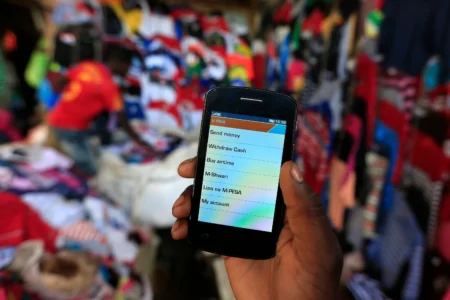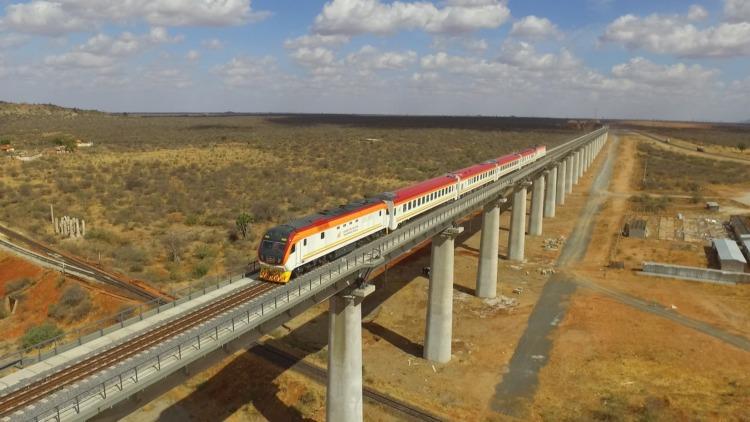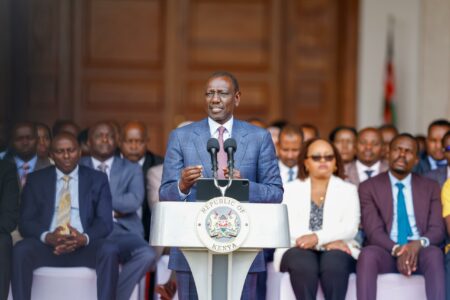The Kenyan government has renewed its efforts to fight counterfeit goods and infringement of intellectual property, as counterfeiters continue to pose a threat to local manufacturers and traders.
In a new move, the country’s anti-counterfeit laws have been amended, putting in place new measures that will help fight the vice which takes up to USD300 million of local manufacturers’ market share annually, with the government loses USD80 million as potential tax revenue.
READ:Shocking counterfeit headaches crippling Kenya’s manufacturing sector
The State is also targeting proceeds of counterfeit trade mainly property, with top businessmen, politicians and high-net individuals being among the biggest perpetrators who could cross swords with the authority.
The Anti-Counterfeit Act, 2008 (amended) now extends the counterfeiting scope to include goods counterfeited outside Kenya, allowing for their impoundment.
This means that the Anti-Counterfeit Authority (ACA), formerly the Anti-Counterfeit Agency, now has the power to impound items counterfeited outside the country at the entry points.
This was previously limited to counterfeiting carried out in Kenya, according to ACA.
Consumers now also play a pivotal role in promoting the fight against counterfeit products as the end users of the product.
“A consumer may lay a complaint if they suspect an item is counterfeit with the ACA for investigations. Previously, only complaints from trademark owners could be investigated,” ACA Executive Director Elema Halake said.
The Act gives an Inspector the power to investigate any offence relating to counterfeit even when the same is not an offence under the Act.
This has been appreciated by industry players who felt they were not protected when there were grey areas
In regard to importation of counterfeits, the inspector now has the same power as that of a customs officer such as entry, examination, seizing and impounding of counterfeit goods, which now allows ACA to conduct more robust inspections at the ports and entry points.
‘’There have been some amendments to the Anti-Counterfeit Act, 2008 underscoring the government’s commitment to fight anti-counterfeit trade and promote bona fide manufacturers and intellectual property owners in line with the Agenda 4,’’ Trade Principal Secretary Chris Kiptoo said during a press briefing in Nairobi.
‘’The amendments are aimed at providing more protection for trademark owners and boost the fight against counterfeits,’’ the PS said.
Most counterfeited goods
Fast-Moving Consumer Goods, also known as FMCG, are the most counterfeited products according to authorities.
These include mobile phones, alcohol and beverages, DVDs/CDs , bottled drinking water and pharmaceuticals.
Other products are food products, detergents, electrical gadgets, perfumes and cosmetics, cigarettes, computer software and hardware among others.
‘’Illicit alcohol has been our biggest concern in the alcoholic beverage industry, and we believe these amendments provide ACA with a robust legal mechanism to fight the menace. We now look forward to full implementation of these new amendments accompanied by a strong set of regulations to reinforce the changes,’’ Gordon Mutugi, Chair of the Alcoholic Beverage Association of Kenya (ABAK) noted on the amendments.
A recent study has revealed that 70 per cent of Kenyans have purchased counterfeit products where 81 per cent have bought these goods unknowingly.
19 per cent of Kenyans have however knowingly paid for this goods, a move the authority says is worrying as counterfeit goods are hazardous apart from their support for crimes.
Most counterfeit are cheap, a leading factor for purchasing by majority (49.6 per cent). Other factors are unavailability of original (17.3 per cent), unaware of risks (18.3 per cent) and other reasons (14.9 per cent).
ACA chairlady Flora Mutahi has warned that counterfeits and illicit trade remain an impediment to the achievement of the Big Four’s manufacturing arm.
“We want to tell members of the public please don’t buy cheap,” Mutahi said told Journalists at a recent event in Nairobi, even as she affirmed ACA’s commitment in the fight against counterfeit, with 58 new inspection officers expected on board to cover the country’s porous borders.
Counterfeit hotspots have been identified as Nairobi, Nakuru, Malaba, Busia, Kisii, Mandera, Embu, Kapenguria, West Pokot, Wajir, Isiolo, Garissa, Lamu, Isebania, Migori, Namanga, Kajiado ,Mombasa, Moyale, Lokichokio, Liboi,Malaba, Nyeri, Machakos, Kitale and Kitui.
Previous achievements
The latest developments come amid a heightened war against counterfeits and illicit trade in the country where the government has successfully made inroads through a multi-agency taskforce commissioned by President Uhuru Kenyatta in April last year.
Goods worth Ksh8.5 billion (USD84.1 million) were seized within the first six months. ACA as an entity has nabbed goods worth Ksh2.1 billion (USD20.8 million) with Ksh612 million (USD 6.1 million) worth of the same being destroyed.
The fight has seen unscrupulous dealers change tact, moving their counterfeiting activities from warehouses to their home compounds.
ACA has however vowed to go after individuals in the homes with support from security officials.
“With the ongoing inter-agency crackdown, people have moved from go-downs to their homes. We are going after them in their homes,” Halake warned.
The government’s anti-counterfeit war has received backing from the international community and institutions.
Last year,Trade Mark East Africa (TMEA) signed a financing agreement worth USD1.5 million with the Anti-Counterfeit Authority to support the fight against counterfeits in the country.
READ:Kenya to digitize war on counterfeits with US$1.5 million kitty from Trade Mark
ACA is expected to use the funds to develop an online platform that will improve the efficiency of tracing and seizing of counterfeit goods.
The private sector has since welcomed recent amendments in the Anti-Counterfeit Act saying they will make it easier to deal with counterfeiters.
The vice has been described as a hindrance to the growth of the local manufacturing industry, which could affect the realization of President Uhuru Kenyatta’s Big 4 agenda on manufacturing, as the government targets to increase the sectors GDP contribution to above 15 per cent from the current paltry 7.5 per cent.
Majority of the counterfeit goods are said to be originating from Asian countries, mainly china.
Huge consignments are either exported to Kenya directly or through neighbouring countries, before being smuggled into the country.
The long-stretch porous borders along the Kenya-Tanzania and the Uganda border have been blamed for entry of contrabands. Somalia and Ethiopia are also routes used by rogue businessmen to sneak counterfeits into Kenya.











